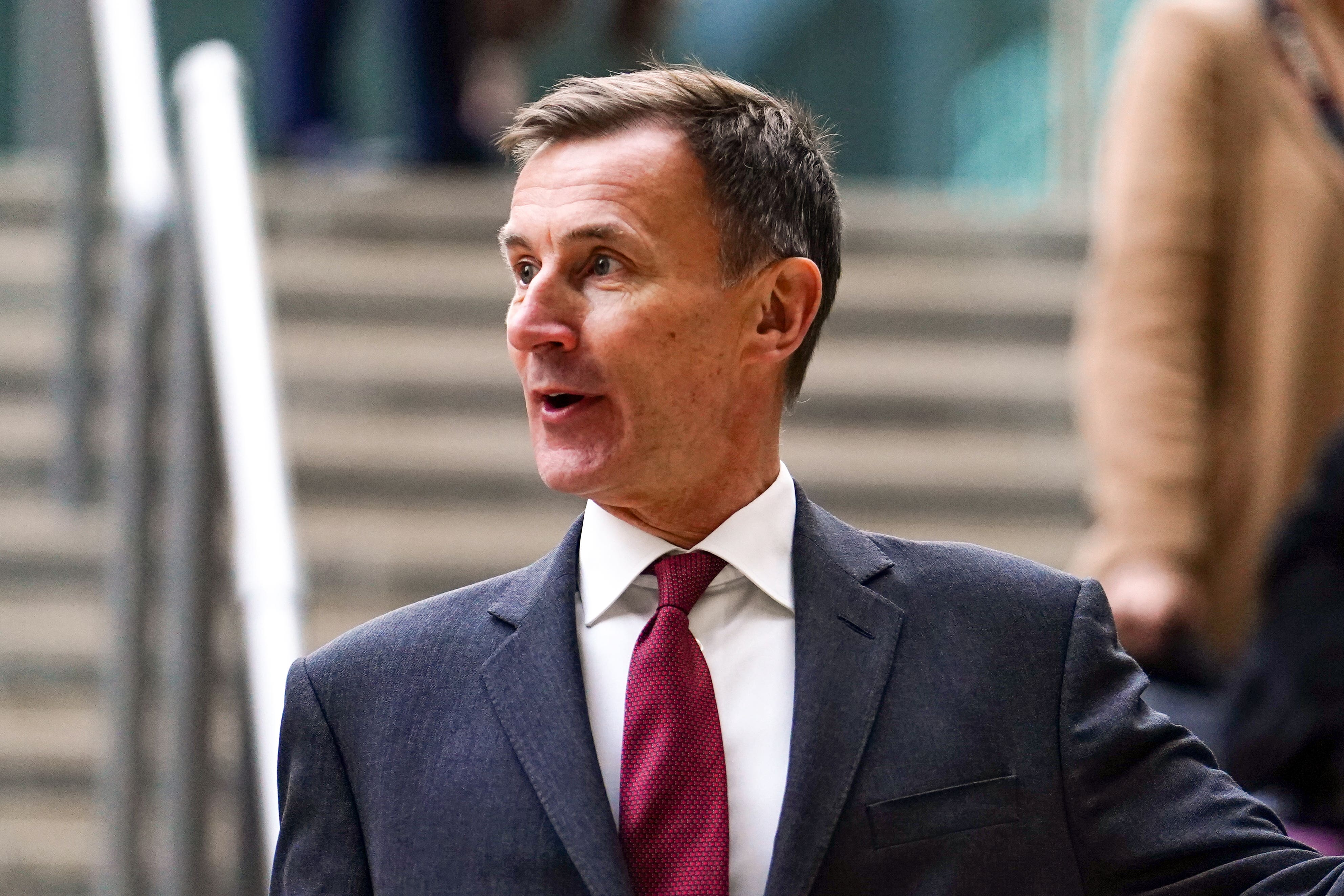There is no mystery about the UK’s economic situation
Letters to the editor: our readers share their views. Please send your letters to letters@independent.co.uk

The government has been practising austerity continually since 2010 and Jeremy Hunt is still saying it must continue. This is economic stupidity fuelled by economic illiteracy.
It is the “deficit”, that is so demonised by politicians, the media, and even – heaven help us – so-called economists, that pays for growth! It’s not rocket science.
If the government taxes back as much as it spends, where is the money needed for growth going to come from? Surpluses in the past have invariably led to recession. For growth to happen you must have so-called “deficits”.
The national debt is not a debt at all. It’s a record of the money the government has put into the economy to fund growth!
The real question the media should be asking is why this government is obsessed with austerity. The answer is no mystery. Austerity debilitates state institutions and prepares them for privatisation. That means government money going into the pockets of big business instead of the UK economy and it’s happening right under our noses. The Holy Grail of privatisation is of course the NHS.
It has not been underfunded because of economic need but because of Tory policy. Put simply, it is the transfer of public money to big business; that is the core objective of this government.
Andrew McLauchlin
Stratford upon Avon
Labour still has time to reconsider
Polls indicate that at the next general election the SNP may eclipse the Tories as the leaders of the opposition in the House of Commons. It is forecast that the Tory party could win as few as 45 seats due to their performance in government, even with the absence of Jeremy Corbyn.
Ironically the return of Boris Johnson could well clinch the deal.
Should the forecast prove correct, there remains the question of how the majority of seats will be allocated between the other parties. Polls indicate the damage done to the economy by Brexit is a burgeoning realisation for the majority.
The pro-EU SNP are sitting pretty. The Lib Dems are clear that they wish to rejoin, while Keir Starmer’s stance that departure from the EU is a done deal may well prove electorally less attractive than he hopes.
If Brexit is once again the key issue, and rejoining the EU is the election’s key focus, could the Labour party be out of tune with its support and the country as a whole? There is still time to reconsider.
David Nelmes
Newport
In a system already overstretched, does it not make sense to bring back the death penalty?
Lee Anderson, the new deputy chair of the Conservative Party, has said that he would support the restoration of the death penalty. I hope the UK doesn’t take that course, not least because convicted people are sometimes innocent.
But if someone has been sentenced to decades in prison, and is likely to die without being released, they might choose to die. There will be those who say that death is too good for them and that they should suffer their punishment. That might be so, if the point of imprisonment were merely revenge. But the real objectives of incarceration are to prevent the repetition of the crime and, sometimes, to achieve rehabilitation. The latter does not apply in the case of someone who will never be released.
Obviously, there would have to be safeguards to avoid coercion. But does it make any sense to keep a dangerous prisoner alive against their will at enormous expense to the taxpayer in a system that is already overstretched?
Susan Alexander
South Gloucestershire
Our natural disaster response must include wider human rights
Mary Dejevsky is right to allude to the profound political fallout of Turkey’s earthquake. We must not overlook the social, cultural, gender and economic fallout, too.
The poor, marginalised and downtrodden disproportionately bear the brunt of natural disasters. They often live in shoddily constructed homes that are more vulnerable to earthquakes and are often victims of gender stereotypes, disparities and patriarchal societies.
The lesson that could be gleaned from this human tragedy is that we should incorporate a human rights perspective into our natural disaster response, as it enshrines the rights and dignities of already vulnerable peoples.
Dr Munjed Farid Al Qutob
London
Britain needs Heathrow’s expansion
Further to Helen Wilson-Beevers’ article on Heathrow expansion, it’s worth recalling that the airport operated at 98 per cent capacity before the pandemic struck, and will do so again soon.
If Heathrow does not get another runway, then airlines will switch to other hub airports like Paris, Amsterdam and Frankfurt. That won’t reduce one iota of carbon – it’ll make it worse.
As Britain struggles to recover from Covid, the effects of war in Ukraine and the cost of living crisis, the case for private sector-led economic growth becomes more important. Britain needs to trade. Its biggest port needs to grow.
We can all agree that a new runway should not happen if it fails to meet the highest standards for air quality, noise and carbon reduction. But parliament has already encased that commitment in law, in a vote in 2018 – approved by the Supreme Court.
The “knowledge transfer” of Heathrow’s greener runway can be a gift to global carbon reduction in aviation. Its time has come.
Parmjit Dhanda
Executive director of Back Heathrow and former Labour government minister






Join our commenting forum
Join thought-provoking conversations, follow other Independent readers and see their replies
1Comments